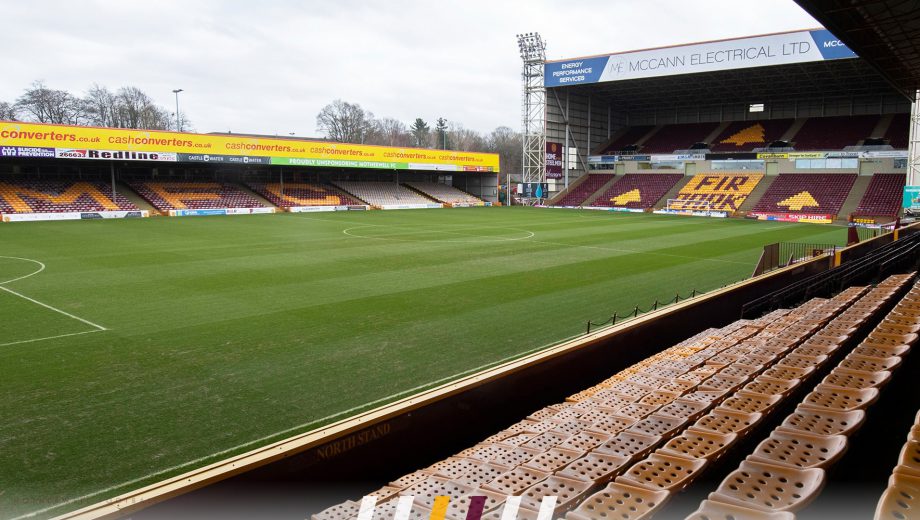EFDN celebrate World Environment Day
World Environment Day (WED) is celebrated on the 5th of June every year, and is the United Nation’s principal vehicle for encouraging awareness and action for the protection of our environment.
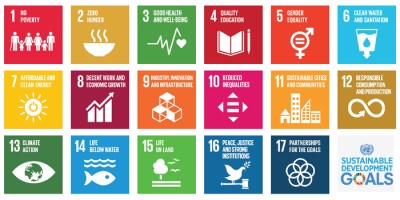 First held in 1974, it has been a flagship campaign for raising awareness on emerging environmental issues from marine pollution, human overpopulation, and global warming, to sustainable consumption and wildlife crime. WED has grown to become a global platform for public outreach, with participation from over 143 countries annually. Each year, WED has a new theme that major corporations, NGOs, communities, governments and celebrities worldwide adopt to advocate environmental causes. For this edition, China will host the celebrations on the theme ‘Air Pollution’, which is increasingly recognised as a major issue, particularly in urban areas. With the growing awareness of other key issues such as climate change, ocean plastic, air pollution, deforestation and loss of biodiversity and many more, there is growing pressure for and a growing will from all organisations, not just in football, to reduce their environmental impact and operate sustainably. Being proactive and dealing with such issues can be turned into a positive for football organisations both in terms of minimising their impact and providing a strong business case.
First held in 1974, it has been a flagship campaign for raising awareness on emerging environmental issues from marine pollution, human overpopulation, and global warming, to sustainable consumption and wildlife crime. WED has grown to become a global platform for public outreach, with participation from over 143 countries annually. Each year, WED has a new theme that major corporations, NGOs, communities, governments and celebrities worldwide adopt to advocate environmental causes. For this edition, China will host the celebrations on the theme ‘Air Pollution’, which is increasingly recognised as a major issue, particularly in urban areas. With the growing awareness of other key issues such as climate change, ocean plastic, air pollution, deforestation and loss of biodiversity and many more, there is growing pressure for and a growing will from all organisations, not just in football, to reduce their environmental impact and operate sustainably. Being proactive and dealing with such issues can be turned into a positive for football organisations both in terms of minimising their impact and providing a strong business case.
Football has the ability to reach out to a large audience, and for this reason many clubs use their unique power to communicate and implement programmes that take care of the environment.
For example, sports clubs have a lot to gain from promoting walking and cycling routes and installing suitable assets such as cycle locking facilities, in particular a healthier fan-base and more active workforce, plus decreased noise pollution and improved air quality around sports venues. EFDN partner Healthy Stadia’s Active Travel Guidance helps representatives from sports stadia involved in facilities management, operations, and communications to work with local partners to develop and promote an active travel plan as part of an overall travel strategy.
Some great examples of clubs and sports organisations taking action to raise awareness and promote sustainability throughout the world
Forest Green Rovers FC
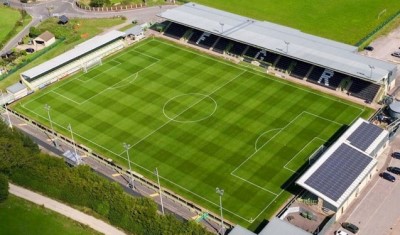
The world’s first 100% vegan football club have received a lot of recognition for their environmental and sustainability work, having been named the ‘greenest football club in the world’ by FIFA after signing up for the UN Framework Convention on Climate Change (UNFCCC) initiative called “Climate Neutral Now’ and becoming the first UN certified carbon neutral football club. To achieve this, Forest Green have made sustainability central to their operations with their work including installing solar panels and electric vehicle charging points at their stadium, an entirely vegan matchday menu, capturing rainwater and recycling it to water their pitch (which is also organic and cut by a solar-powered robotic lawnmower using GPS). They are also in the process of building a new stadium made almost entirely from wood and have an eco-trail which can educate supporters and children on sustainability.
KAA GENT
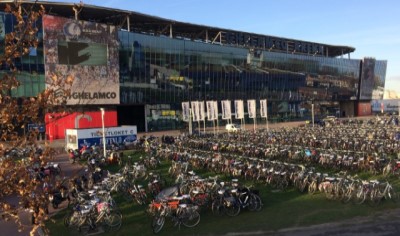 ‘Velo Buffalo’ encourages the supporters to care about the environment by visiting the stadium on game days by bike instead of using the car or other motorised vehicles. The strategy has proven to be well accepted among the fans of the club. Every game, around 1500 to 2500 supporters are taking their bicycles to cycle to the stadium, and the number rises up to 3500 fans for important matches. In order to implement the approach successfully, the club, together with the city and other partners ensured that around 2850 bicycle racks were installed. Additionally, the cycle paths around the arena were properly developed.
‘Velo Buffalo’ encourages the supporters to care about the environment by visiting the stadium on game days by bike instead of using the car or other motorised vehicles. The strategy has proven to be well accepted among the fans of the club. Every game, around 1500 to 2500 supporters are taking their bicycles to cycle to the stadium, and the number rises up to 3500 fans for important matches. In order to implement the approach successfully, the club, together with the city and other partners ensured that around 2850 bicycle racks were installed. Additionally, the cycle paths around the arena were properly developed.
VFL WOLFSBURG
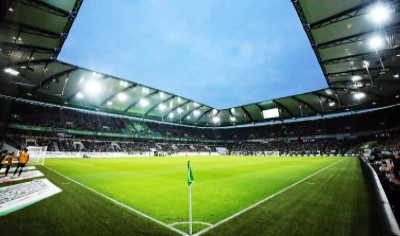 One of the clubs that considers climate and environmental protection to be a high priority is VFL Wolfsburg. The club produced an interesting CSR Report which provides details on their work in improving the energy efficiency of their stadium and overall operations, waste management, removing single-use plastic from the stadiums by using compostable bags and cups among other things. According to the club, the largest amounts of waste are being produced on match days in the Volkswagen Arena. In order to reduce the waste, in recent years, Wolfsburg introduced the usage of reusable cups, instead of plastic cups, and food as sausage is no longer being sold on cardboard plates, but directly in buns.
One of the clubs that considers climate and environmental protection to be a high priority is VFL Wolfsburg. The club produced an interesting CSR Report which provides details on their work in improving the energy efficiency of their stadium and overall operations, waste management, removing single-use plastic from the stadiums by using compostable bags and cups among other things. According to the club, the largest amounts of waste are being produced on match days in the Volkswagen Arena. In order to reduce the waste, in recent years, Wolfsburg introduced the usage of reusable cups, instead of plastic cups, and food as sausage is no longer being sold on cardboard plates, but directly in buns.
JUVENTUS FC
 According to Climate Action, Juventus FC installed in their Allianz Stadium, 116 LED lamps to light up stands and supporters, and 396 LED floodlights for the pitch. 192 LED bars were fitted under the roof, 1,217 new LED lamps were installed within the Stadium indoor areas. This new LED system designed to light up the inside of the stadium and the pitch itself improved energy efficiency. The club also made available waste separation specifically geared towards
According to Climate Action, Juventus FC installed in their Allianz Stadium, 116 LED lamps to light up stands and supporters, and 396 LED floodlights for the pitch. 192 LED bars were fitted under the roof, 1,217 new LED lamps were installed within the Stadium indoor areas. This new LED system designed to light up the inside of the stadium and the pitch itself improved energy efficiency. The club also made available waste separation specifically geared towards
differentiated waste collection. Finally, the players and coaches have committed to travel to and from some away matches by train.
Arsenal FC
 Arsenal FC have positioned themselves as leaders of sustainability in the Premier League. The club ran a tree planting initiative which included first team players Aaron Ramsey, Hector Belerin and Petr Cech helping plant 100 trees at their training ground. Arsenal also installed a battery storage system that can store enough energy to power the 60,000-capacity Emirates Stadium for a 90-minute match. The London club was the first in the UK to integrate such a system into its stadium.
Arsenal FC have positioned themselves as leaders of sustainability in the Premier League. The club ran a tree planting initiative which included first team players Aaron Ramsey, Hector Belerin and Petr Cech helping plant 100 trees at their training ground. Arsenal also installed a battery storage system that can store enough energy to power the 60,000-capacity Emirates Stadium for a 90-minute match. The London club was the first in the UK to integrate such a system into its stadium.
SPORTS BRANDS
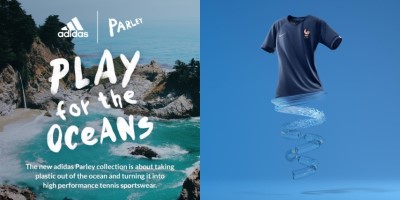 Adidas launched the ‘Parley x Adidas’ collection raising awareness of the ocean plastic issue by making the match day jerseys of Juventus, Real Madrid, Manchester United, Bayern Munich and several teams in the US entirely from recycled ocean plastic. For the 2019 Women’s World Cup this Summer, Nike revealed new uniforms of 14 federations made from at least 12 recycled plastic bottles each shirt.
Adidas launched the ‘Parley x Adidas’ collection raising awareness of the ocean plastic issue by making the match day jerseys of Juventus, Real Madrid, Manchester United, Bayern Munich and several teams in the US entirely from recycled ocean plastic. For the 2019 Women’s World Cup this Summer, Nike revealed new uniforms of 14 federations made from at least 12 recycled plastic bottles each shirt.
SPORTS COMMITTEE
The Paris 2024 Olympic and Paralympic Games Committee announced a bold strategy for the most sustainable Games ever, ‘a unique celebration of passion and purpose to be shared with the world’. As the first Games fully aligned with the Paris Climate Agreement, Paris 2024 offers a compact plan, the best transportation system at service of the Games, athletes and fans at the heart of a global city and innovative sustainability initiatives. Paris 2024 has 95% of planned venues as existing or temporary structures, setting the stage for spectacular competition venues with a ground breaking emissions reduction strategy resulting in a 55% smaller carbon footprint than London 2012, widely agreed to be the most sustainable Games to date.
The above are just some examples of the excellent work currently being done in the field of environmental sustainability in football and sports and there is a lot more being done and more which can be done in football to minimise the environmental impact of their activities, raise awareness and engage with fans.
World Environment Day is a call to action for the football community to come together to combat one of the great environmental challenges of our time, and ultimately show that football really is #Morethanfootball.
Community Champions League




